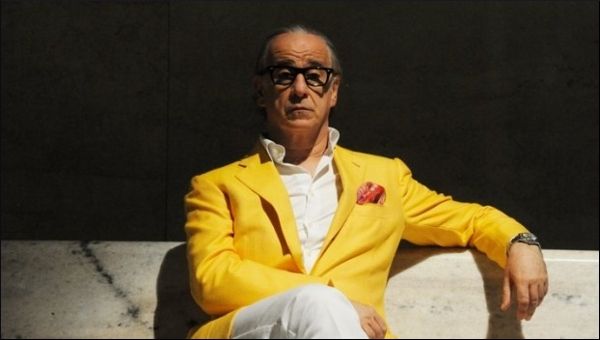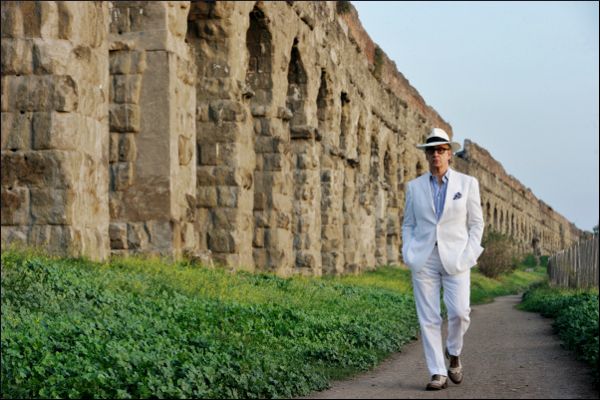Ever since Il Divo, his 2008 biopic about the crucially controversial political giant Giulio Andreotti, Paolo Sorrentino has become the marquee name of Italian cinema, more popular and respected even than his peer Matteo Garrone, director of 2008’s mob film Gomorra. Sorrentino followed up Il Divo with the international production This Must Be the Place, an ambitious, flawed English-language debut starring Sean Penn. It was not a bad film by any means, nor was it a standard foreign-director-goes-to-Hollywood endeavor, but it was certainly not on par with his previous effort.
Sorrentino, who has since also written a novel, now returns to Rome with La grande belleza (The Great Beauty), the story of disillusioned 65-year-old writer Jep Gambardella. Jep had once been a promising novelist – always searching for the great beauty in art, people, and things around him – but he is now a shade of his former self, filling up the void inside him with the deafening ugliness of Rome’s high society parties.

The setting is key to the movie, especially because of Rome’s everlasting, built-in juxtaposition of the high and the low, the sacred and the profane. Italian people are accustomed to the expression “i salotti romani,” the Roman living rooms. It’s a reference to a very specific kind of environment, presumably containing the elite members of the worlds of art, business, and politics, all firmly rooted in the city and maybe blending together in unhealthy ways. It is also an expression of disdain, which says a lot about class conflict and a quintessentially Roman contradiction: the city is a center of power that is nonetheless naturally inclined towards leisurely, decadent indulgence. It is exactly in this atmosphere that Sorrentino drowns his usual filmmaking style. The result is a sprawling, loosely-structured exploration of loss, ennui, and faith.
"Paolo Sorrentino has become the marquee name of Italian cinema."
Linguistically, it’s a unique opportunity to witness the clash between pretentious, upper-class Italian and more colloquial versions of the Roman dialect. Look no further than the characters of Romano and Ramona (too subtle?) for an anthology of Roman stereotypes in regards to tone, vocabulary, and body language. Notably, they are played by Carlo Verdone and Sabrina Ferilli, comedic actors whose big public personas usually prevent them from taking on roles like these. And yet, Sorrentino needs them to bring something of their personas into their characters. Compare their deliveries to the suave oscillation of Gambardella’s Neapolitan accent, which ranges from noble refinement to informality. Toni Servillo, who plays him, is arguably Italy’s finest actor. He often stars in Sorrentino’s movies and, like the director, is from Naples. And just like the movie itself, which is both about mundane consumption and poetic and unattainable belleza, so does Servillo show considerable range as an actor, sometimes within the same monologue, as in his speech about the "uomo miserabile" (the miserable man) featured in the film’s stunning trailer.





